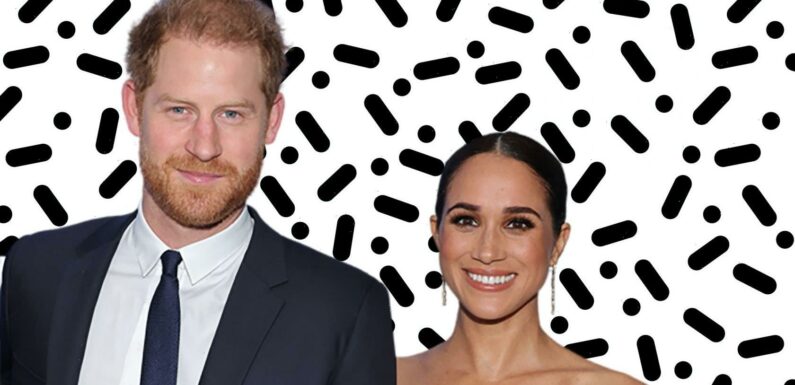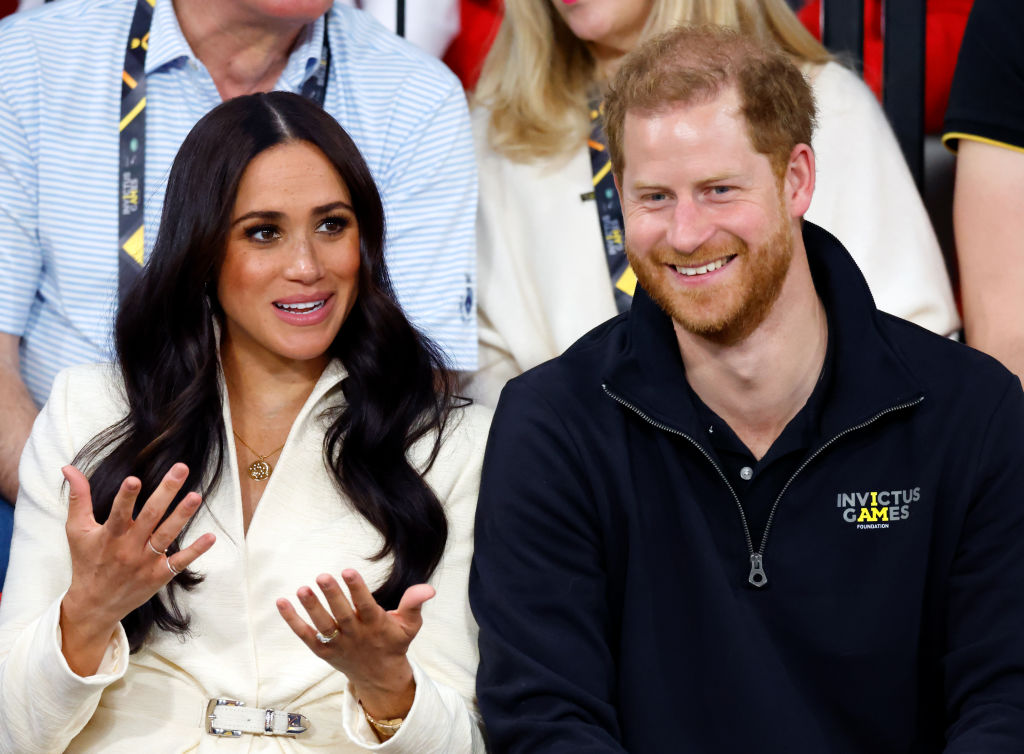
Written by Ellen Scott
Prince Harry admitted he had a “list” of ideal attributes for a partner – which Meghan ticked off, of course. Should we all take the same approach when dating?
In among all the revelations about Prince Harry and Meghan Markle’s relationship in Harry & Meghan, their Netflix documentary (some of our favourites include that Harry first saw Meghan with the iconic Snapchat dog filter, that he was late for their first date, and that Meghan was planning a “single girl summer”), one tidbit really stuck out: that the royal had an “extensive list” of “what he was looking for” when seeking a partner.
Harry refused to divulge what his exact requirements were, simply gesturing to his wife and saying “this is the list”. While we could spend quite some time imagining what boxes Prince Harry might have wanted ticked (involvement in a charity? Experience running a lifestyle blog? Freckles?), perhaps the better thing to ponder is this: is having any sort of list for a potential partner a good idea?
It clearly worked out well for Harry. But most of us are not royals. Is a list a good plan for non-princely daters?
Sex and relationship therapist Rhian Kivits says yes. “It can be extremely helpful to have a list of qualities you seek in a potential partner when dating,” she tells Stylist. “Making this list helps you feel clear about what you’re looking for and what you’re available for, and you may therefore feel more positively focused as you navigate the dating game.”
Dating coach Kate Mansfield agrees, commenting: “This is the fundamental thing that I teach my clients to implement. The benefits are endless, such as making sure that you have a system to eliminate the wrong people as soon as possible and a set of standards that reflect your vision for what you want and need in a relationship.”
Where these lists can bring you into trouble, however, is when they’re a bit rubbish. If a list is superficial, for example, or focuses on things that really don’t matter when forming a great relationship. You might be tempted to write a list with items like ‘is a lawyer’, ‘is 6ft or over’ or ‘likes olives’ – these aren’t genuinely key requirements for a good match.
“The qualities on your list tend to reflect your core values, priorities, standards, aspirations and desires, so your list can help you recognise the potential partners who are most likely to be compatible with you,” Kivits advises.
Ness Cooper, a sex and relationship expert, suggests looking a little deeper into the qualities you might instinctively put on your list. “Rather than being 100% focused on a tick-box list, sometimes looking at the motivation as to why you feel you need certain qualities in a partner can give you a better understanding as to why it’s important to you,” she explains. “You may find when you assess your internal beliefs, thoughts and feelings around a particular quality that it isn’t the quality you’re looking for in someone as such, but rather the shared motivations behind the quality.
“Someone can tick all your list’s qualities but not have the same motivations, drive and more, meaning the relationship may not be as satisfying as you’d hoped.”
So perhaps rather than having a certain job title on your list, you might decide that what you really care about is that your partner has ambition or that their career isn’t their entire life. If you put down ‘older’, consider whether someone a few years younger than you, but who is responsible and reliable, might work.
There are some things that experts reckon everyone should have on their list, however. “These qualities are needed in order to lay the foundations of a secure, healthy relationship,” notes Kivits, “such as communication skills, honesty and integrity, and [being] trusting and trustworthy.”
Once you have your list, the next challenge is deciding how rigidly to stick to it. If you’ve got rid of the stuff on there that doesn’t really matter and are left with bigger boundaries and values, you should be fine to keep to that checklist, but if you do still have some more niche items, it’s a good idea to stay fairly flexible.
After all, it’s going to be tough for someone to tick off every single dream requirement – and it’d be a shame to rule out someone brilliant just because they aren’t exactly what you imagined.
“The risk of a list is that you may end up ruling out the potential partners who are ‘wild cards’ – those who might not appear to be a match on the surface but who could have pleasantly surprised you had you given them a chance,” notes Kivits. “This could mean that you pass on a good thing or that you don’t give possible relationships a real opportunity to develop.
“If you’re struggling to find dates because you’re looking for perfection or your list is so long that nobody seems to fit the bill, you could be taking an approach that’s too rigid.
“Your list isn’t an excuse to be judgmental or label potential partners as ‘not good enough’. If that’s the case you could find yourself pushing love away and getting frustrated with a lack of results when dating.
“One way you can deal with this is to ask yourself whether the qualities you’ve listed are realistic and a reflection of your true desires. Sometimes we list qualities because we’ve been conditioned to think we ought to want certain things, but this is pointless if those qualities don’t mean much to you.
“You could also ask yourself whether you embody those qualities yourself – it’s never helpful or fair when we hold others to higher standards than we hold ourselves. You could also segment your list into ‘non-negotiables’ and ‘flexibles’, which allows more room for you to manoeuvre and be flexible.”
Plus, bear in mind that your list might change. Cooper advises: “Being fluid with your list is important, as it’s likely that over time the list of expectations can change due to various factors.” What might matter to you as a twenty-something could be radically different to what you value at 40 – so don’t get stuck on what you used to want.
Essentially, you alone need to work out which things on your list are deal-breakers and which are more deal-adjusters. Having a list is no bad thing, as long as it’s not a mile long and filled with silly requirements that mean little for a lasting relationship.
“Having a good sense of what is absolutely essential for you and what is flexible – such as perhaps age or looks – will help you to give people a chance,” notes Mansfield. “Often chemistry has nothing to do with what someone looks like; it’s an energy, humour or inner confidence that can make someone very attractive in person, as opposed to in their pictures.
“If you haven’t done much dating, my advice as an expert is date, date and date some more. Learn to enjoy dating for the sake of it, bring fun and positivity, and use dating to learn about yourself and what you want and need.
“The more you let go and keep things open and light-hearted, yet with a strong intention and high standards around how you are treated, the more likely you are to suddenly attract ‘The One’.”
Stick to your core boundaries and beliefs but, as Meghan’s friends advised her: “leave room for magic”.
Images: Getty, Stylist
Source: Read Full Article
